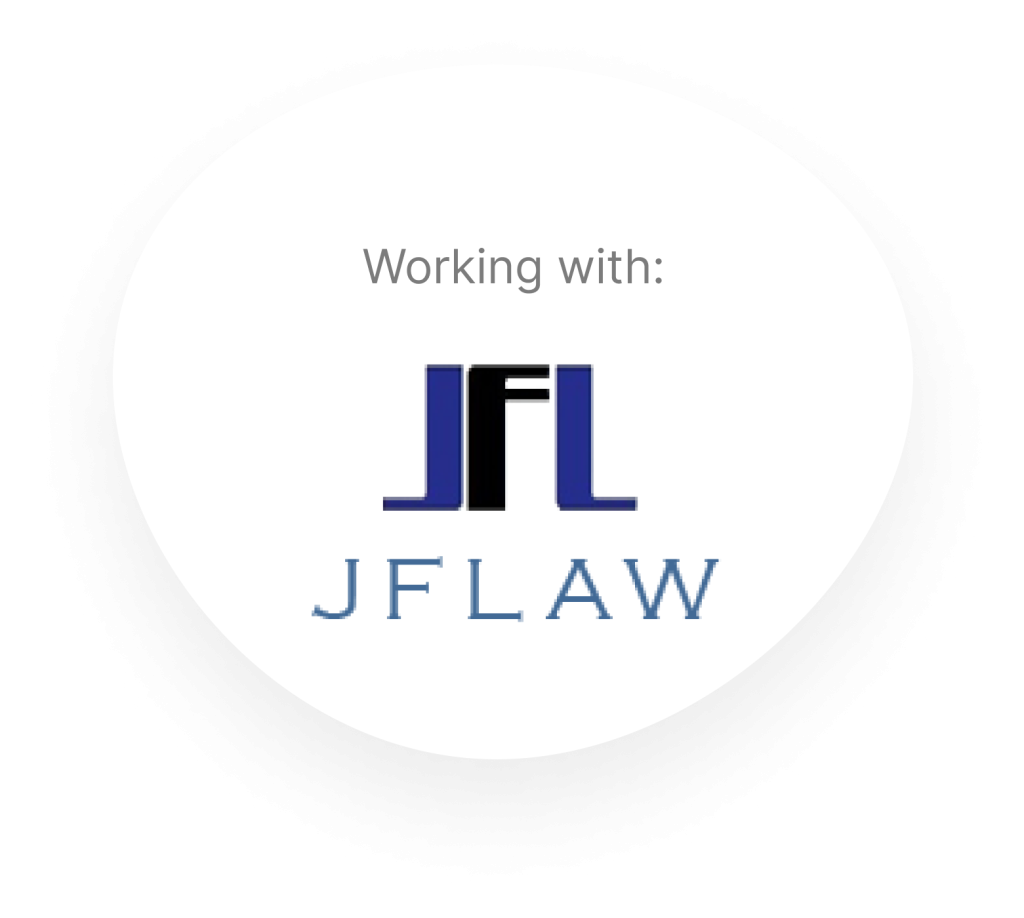Do I Get Full Pay If Injured At Work In The UK?
Last Updated 5th June 2025. If you have an accident at work, two things will be on your mind. First, can I claim compensation? Second, how much sick pay will I get while I am away from work, and will this equate to my usual income?
Under the Health and Safety at Work etc. Act 1974, all employers owe a legal duty to keep their employees safe in the workplace. This means that if you are injured because they breach this duty, you could potentially make a compensation claim.
If you make a successful accident at work claim, your compensation can cover both your injuries and any lost pay, even if you get contractual or statutory sick pay.
This guide explains how sick pay schemes work and their place in personal injury claims following an accident at work. We’ll talk about the different kinds of sick pay, as well as when you could make an accident at work claim and how we can help.

Reporting An Accident At Work
After an accident at work, your first priority should be seeking medical attention as soon as possible. However, your next priority is to ensure that the accident is recorded in your employer’s accident book. Any workplace with ten or more employees is required to have an accident book by law.
If your employer doesn’t have an accident book or you’re not sure if anyone has written down details of the event, then keep a written record of it yourself. Photographic evidence is also valuable in case you want to claim in the future.
Evidence is extremely important and something you’ll need if you intend to claim compensation. Our solicitors can help you gather all the evidence you need to support your claim; get in touch today to learn more.
Will I Receive Full Pay After A Workplace Accident? We Explain The UK Rules
Under UK law, your employer must pay you if you are unable to work due to illness or if injury prevents you from coming to work. This includes injuries sustained in the workplace after an accident at work. However, your employer is not legally obliged to pay your full salary, even if your injury was their fault.
Your employer is only legally required to pay Statutory Sick Pay (SSP), but you could still be entitled to more money if your workplace has a sick pay policy. Your sick pay entitlement could be more than SSP; the details for this will be found in your employment contract.
Contractual Sick Pay Vs. Statutory Sick Pay
Statutory Sick Pay is currently £116.75 per week and is paid by your employer for 28 weeks. This may be all you receive if your employment contract does not provide an employer sick pay scheme.
Contractual sick pay is any pay included in your contract. This can vary from workplace to workplace, with some offering 100%, 50%, and 25% of your full pay for a set amount of days. Not all workplaces provide contractual sick pay.
Making a personal injury compensation claim will not affect your entitlement to Statutory Sick Pay or contractual sick pay, but it might make your finances easier to manage. When you make a successful accident at work claim, you could claim back any earnings you lost while recovering from your injuries.
Contact our team today to find out if you could be entitled to make an accident at work claim with one of our expert solicitors.
How Can I Claim Compensation For A Work Accident?
All employers owe their employees a duty of care. To claim for a workplace accident, you need to prove that they breached their duty of care, and you were injured as a result of this.
Then, we always recommend seeking legal advice from a solicitor. They’ll need as much information as possible about how the accident at work occurred and will gather evidence, including the accident report, medical reports, witness statements, and photo evidence.
If you contributed to your injuries, it doesn’t remove your employer’s legal duty to keep you safe in the workplace. Any compensation may be proportionally reduced. This is called contributory negligence.
An accident at work claim involves two types of compensation:
General Damages
General damages reflect any physical injury or psychological trauma caused by the work accident. The solicitor handling your work claim will need evidence of the injuries you have suffered from your medical records.
The courts, insurance industry, and lawyers use the Judicial College Guidelines to help them determine the monetary compensation for different injuries.
Special Damages
Special damages cover out-of-pocket costs caused by your injuries. These can include medical treatment, lost earnings, and transport to attend appointments.
Do I Need Evidence To Get Full Pay If Injured At Work?
Yes, you need to collect evidence in order to claim for any lost earnings you may have experienced as part of your compensation claim. This could include:
- Payslips
- Proof of any statutory sick pay you received for taking time off work for your injury.
- Any other compensation or benefits you may have received.
Other forms of evidence you could gather to give your claim a higher chance of being successful include:
- Details of the incident from the accident book.
- CCTV footage of the accident.
- Photographs of the accident site or prominent injuries on your body.
- Medical records, including prescriptions, X-rays, and correspondence with the doctors.
- Contact details of anybody who witnessed the accident, as this would help in the preparation of witness statements.
- Psychiatric evaluation reports to demonstrate the mental trauma due to the accident.
- Copies of correspondence with your employer, such as emails or letters.
- Employment records to illustrate the number of days missed.
Our team can assist you in the process of collecting evidence. This step may seem daunting and time-consuming, but it is essential to do this to ensure a fair compensation payout. Call us now if you are still wondering do I get full pay if injured at work?
How No Win No Fee Solicitors Co Can Help You Claim Compensation For Your Workplace Injury And Loss of Earnings
If you want to make a personal injury claim after an accident at work, we recommend working with an expert personal injury professional. Here at No Win No Fee Solicitors Co, our team specialises in personal injury claims in the workplace. They are familiar with the accident at work claims process, so they can advise you on how much compensation you could be entitled to.
As our name suggests, we operate on a No Win No Fee basis. This means you don’t pay anything to your solicitor for them to start working on your claim. If you don’t end up with any compensation for your workplace accident, you won’t pay your solicitor any fees for their work.
You’ll only pay a success fee if you get compensation, and the cost is a small percentage of the compensation award. Our service is available to everyone, so it doesn’t matter where in the UK you live—you can still make a claim.
If you’ve had an accident at work, we’re always happy to help. To get in touch:
- Contact us online
- Call us on 0333 091 8598
- Use the live chat feature
Frequently Asked Questions
If I make a claim against my employer, will they try to get rid of me?
When you make a legitimate accident at work claim against your employer after a workplace injury, then these are not reasonable grounds to sack you; this constitutes unfair dismissal.
If you are worried about the financial impact of a compensation payment on the business, your employer won’t actually pay your compensation directly out of business earnings. It is a legal requirement that all employers have Employer’s Liability Insurance (EL), so your employer’s insurance company will cover this cost.
Why is the Health and Safety Executive involved in my case?
The Health and Safety Executive (HSE) only gets involved in the most serious cases of work-related injuries. This includes work-related fatalities or serious injuries on a defined list.
If you are injured at work and your injury is very severe, then it is part of the normal process for HSE to get involved and conduct their own investigation.
Will I still receive sick pay if I am awarded a lump sum compensation for my injuries?
Yes, a lump sum compensation payment won’t affect your entitlement to Statutory Sick Pay (SSP).
Do I pay tax on Statutory Sick Pay (SSP)?
Statutory Sick Pay is treated as earned income and will be taxed. You’ll also have to pay National Insurance (NI) on these payments just as you would on your normal salary or wages. You will never pay tax on any lump sum compensation awarded in a personal injury claim.
What happens if my case goes to Court?
Sometimes, it’s not possible to settle a claim, and your case could go to court. We will represent you throughout the legal action and make sure you have the best possible chance of a good outcome.
How do I claim Statutory Sick Pay?
Your employer pays Statutory Sick Pay so it’s important to let them know that you want to claim when you are on sick leave. SSP can be paid for up to 28 weeks, and your employer will require regular updates or ongoing evidence that you are unable to come back to work during this period.
Is there a time limit to make a claim?
There is a three-year time limit for claiming compensation for a workplace accident, including special damages for lost earnings. This time limit starts to run from the date of the accident or the point at which you became aware of the injury, which can be later.
Who isn’t entitled to Statutory Sick Pay?
Unfortunately, you are not entitled to SSP if you are:
- Self employed, or employed as an agricultural worker
- A member of the armed forces
- Receiving statutory maternity pay
- Have claimed 28 weeks of SSP ending within the last eight weeks


